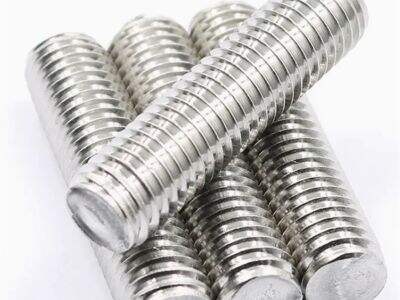When we assemble items, such as toys or furniture, we employ bolts to keep them together. These bolts have to be tightened “just so” to keep everything in place. Did you know there are even new rules in place to assure bolts are tighter now than ever before?
What Are Stud Bolts?
Stud bolts are special types of bolts which are used to hold two things together. It used to be that there was some wiggle room about how tight those bolts had to be. The error in the tightness of the bolt, which was load error, could be up to ±25%. This means the stud bolt might be too loose or too tight, potentially leading to things falling apart or breaking.
Improved Standards
With the new regulation the preload control error has been minimized to ±3%. That means the bolt are a lot truer as far as how tight they are, so things are stronger. That’s a huge improvement and helps make sure everything is put together correctly.
Benefits of Better Technology
It is known that there are many good effects to lower the preload control error by the new technology. ” One of the main benefits, is that things are now a lot more secure. That's better for the environment, sure, but it also means that they won't disintegrate as easily, or crumple into sharp shards, which results in safer products.
Another good thing is that everything is more coherent. Under these new standards, Bolt are tightened in the exact same manner each time, which leads to better products. It’s especially crucial in jobs that require accuracy, such as making airplanes or skyscrapers.
Comparing Old and New Methods
Conventional techniques for tightening bolts, in other words, did not consistently provide the same answers. That could result in products that were less safe or reliable. But when it comes to the new standards, tightening stud bolts has improved a lot.
The new procedures guarantee that bolts will be tightened properly every time, resulting in higher quality products. It’s especially important in fields where safety is paramount, such as when building homes or bridges.
Effects on Safety and Reliability
thanks to preload control error fixed on 3% the products in industrialized of production facilities are very safe and reliable. And when bolts are tightened just so, products are more secure and less prone to fail.
That has made workers who rely on these products safer; it has also made the products themselves more reliable. That’s crucial in an industry where screw-ups could lead to major problems, both with making cars or airplanes.
Memory Optimizer Better Faster Performance in Engineering
The more rigid requirements for stud bolts have expanded the horizons for improved engineering performance and economy. Because bolts are tightened to such a precise standard, products can perform at an optimal level.

 EN
EN







































